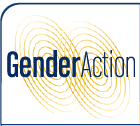|
 |
|
GENDER IMPACT WATCH AT MEDUPI
Community to pressure World Bank to admit gender impacts of Medupi
Lephalale, Limpopo, 26 February 2013 – Eskom's World Bank-funded Medupi Power Station has the potential to seriously disrupt the social fabric, and in particular the lives of women, in Lephalale and surrounds. Women are disproportionately affected by International Financial Institution (IFI) investments in the extractive industry, often being the first to lose their livelihoods and to bear the burden of negative environmental and health impacts [1]. This week, women and men from these local communities will be trained to minimise and mitigate Medupi's harmful gender impacts.
Gender Action [2] is an international organisation that promotes women's rights in IFI investments. The organisation has identified the coal-fired power station and its related infrastructure in Lephalale as a potential hotspot for gender injustice. From tomorrow until 1 March, Gender Action, with host environmental justice organisation groundWork [3] and support from Earthlife Africa (Johannesburg) [4], will train civil society organisations and communities from Lephalale, Thabazimbi, south Durban, the Vaal and Highveld to use the IFI Toolkit [5]. This toolkit will train participants on conducting IFI gender analyses to better understand the impacts Medupi will incur on the lives of women and how mitigation of these can take place.
Gender Action's Sarah Little, who has worked extensively on development issues in Sub-Saharan Africa, now heads up this work with groundWork on issues related to climate change and gender in the broader Lephalale area:
"Through this workshop, we hope to help the local community identify the negative impacts on gender equality they will face as a result of Medupi and give them the tools to hold the Bank accountable to their own policies promoting gender equality and women's empowerment. The Bank is very sensitive to its reputation as a poverty alleviator. If we can document the negative impacts on men, women, boys and girls as a result of the environmental and social degradation caused by Medupi, we hope to shame the Bank enough that they are forced to publicly recognize and redress the harm this investment in dirty energy has and will continue to cause."
In response to the Inspection Panel 2010 investigation, called for by groundWork and Earthlife Africa (Johannesburg), the World Bank Board last year admitted that the development of the power station would be accompanied by major social and environmental risks [6]. While the Board identifies risks relating to non-compliance and inconsistency in the areas of health, water, public infrastructure and assessment of the economic alternatives, no mention of the gender impacts were made. Like many IFI loans in large projects such as this one, the potential for gender injustice is neglected as a risk.
Effects of the power station have already been felt by the women living in the area. Gender impacts are evident all over the world where big projects are brought into communities, and impacts of this nature are already visible in Lephalale. Along with all the current and future environmental and health issues that are facing Lephalale, the area now has a disproportionately large male population as a result of the influx of labour from South Africa and across its borders. This places a strain on already limited infrastructure, such as housing and sanitation, and promotes social ills such as prostitution.
Siziwe Khanyile, Climate and Energy Justice Campaign Manager at groundWork:
"This training presents the communities of Lephalale an opportunity to demand compliance from Medupi and possibly the World Bank through its Inspection Panel by highlighting the social issues that this construction will bring to bear on the community at large. We have previously engaged Eskom and the World Bank on Medupi’s environmental impacts and we are expecting their diligence and mitigation of both social and environmental impacts."
FOOTNOTES
[1] Gender Action and Friends of the Earth International. 2011. Broken promises: Gender impacts of the World Bank-financed West-African and Chad-Cameroon pipelines http://www.genderaction.org/publications/11/chad-cam-wagp-pipelines.html
[2] Gender Action is the only organization dedicated to promoting gender justice and women's rights in all International Financial Institution (IFI) investments such as those of the World Bank and the International Monetary Fund. Gender Action's goal is to ensure that women and men equally participate in and benefit from all IFI investments http://www.genderaction.org/
[3] groundWork is an environmental justice organisation working with community people from around South Africa, and increasingly Southern Africa, on environmental justice and human rights issues focusing on Air Quality, Climate and Energy Justice, Waste and Environmental Health. groundWork is the South African member of Friends of the Earth International www.groundwork.org.za
[4] Earthlife Africa is a non-profit organisation that seeks a better like for all people without exploiting other people or degrading the environment. The organisation aims to encourage and support individuals, businesses and industries to reduce pollution, minimise waste and protect our natural resources http://www.earthlife.org.za/
[5] Gender Action Toolkit for International Finance Watchers: http://www.genderaction.org/publications/IFI-Watcher_Toolkit.pdf
[6] "World Bank agrees: Medupi poses social and environmental risk". Joint press release issued by groundWork and Earthlife Africa (Johannesburg) on 01 June 2012: http://www.groundwork.org.za/Press%20Releases/01June2012Medupi.html
|
© 2012 Gender Action, All Rights Reserved
|
|
|
|
